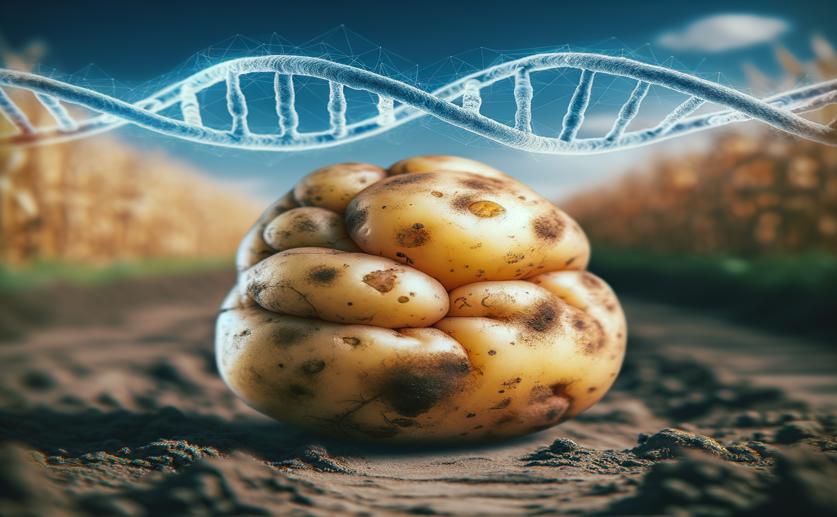
Potato Stress Response: Identifying Key Genes
Jenn Hoskins
11th April, 2024

Image Source: Natural Science News, 2024
Key Findings
- Researchers at Gansu Agricultural University studied how enzymes regulate growth hormones in potatoes, a major global food crop
- The study identified genes responsible for enzymes that control potato plant hormone levels, which could lead to improved crop yields
- The research also explored how these genes respond to stress, aiming to develop potato varieties that can withstand tough conditions
GeneticsPlant ScienceAgriculture
References
Main Study
1) Identification of the GAox gene family in potato (Solanum tuberosum L.) and its expression analysis in response to drought stress
Published 10th April, 2024
https://doi.org/10.1186/s40538-024-00574-0
Related Studies
2) Genome-Wide Identification and Expression Analysis of GA2ox, GA3ox, and GA20ox Are Related to Gibberellin Oxidase Genes in Grape (VitisVinifera L.).
3) Gibberellin biosynthesis and its regulation.
4) DELLA-GAF1 Complex Is a Main Component in Gibberellin Feedback Regulation of GA20 Oxidase 2.



 8th April, 2024 | Greg Howard
8th April, 2024 | Greg Howard